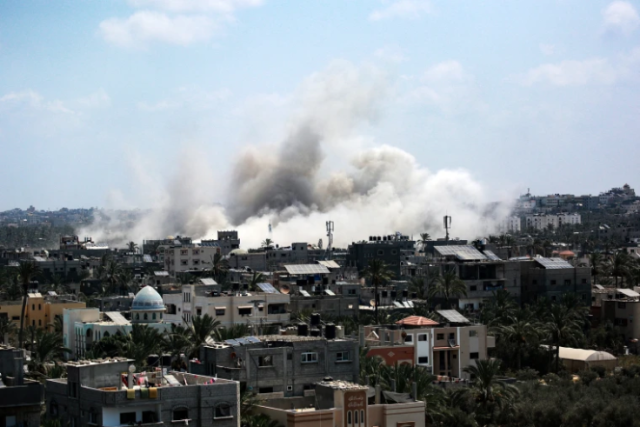No fewer than six persons have been killed on Thursday morning following Israel's airstrikes on Beirut.
The assault occured amid ongoing confrontations with Iran-backed Hezbollah forces.
Israel announced that it had carried out a targeted airstrike in Lebanon’s capital, Beirut.
A large explosion was heard, and a security source indicated that the strike hit a building in the Bachoura district, close to the parliament—marking the nearest Israeli attack on Beirut’s central downtown area to date, according to Reuters.
Lebanon's ambassador to the UK, Rami Mortada, according to the BBC, said Israel had opted for an escalatory course in a volatile and dangerous region, describing the move as “opening Pandora’s box.”
He said that the “hotheads in Israel chose a different path,” despite Lebanon’s desire for a diplomatic solution.
Jeanine Hennis-Plasschaert, the U.N. special coordinator for Lebanon, shared on X on Thursday about another restless night in Beirut, where repeated explosions rocked the city without the sound of warning sirens.
She described the pervasive sense of uncertainty, with fear and anxiety looming over everything as no one knows what will come next.
According to Lebanese security officials, three missiles struck the southern suburb of Dahiyeh, where Hezbollah leader Hassan Nasrallah was killed last week, with loud explosions reported in the area.
Hezbollah, along with other Iran-backed groups such as Yemen’s Houthis and militias in Iraq, has launched attacks across the region in support of Hamas in its conflict with Israel in Gaza.




















